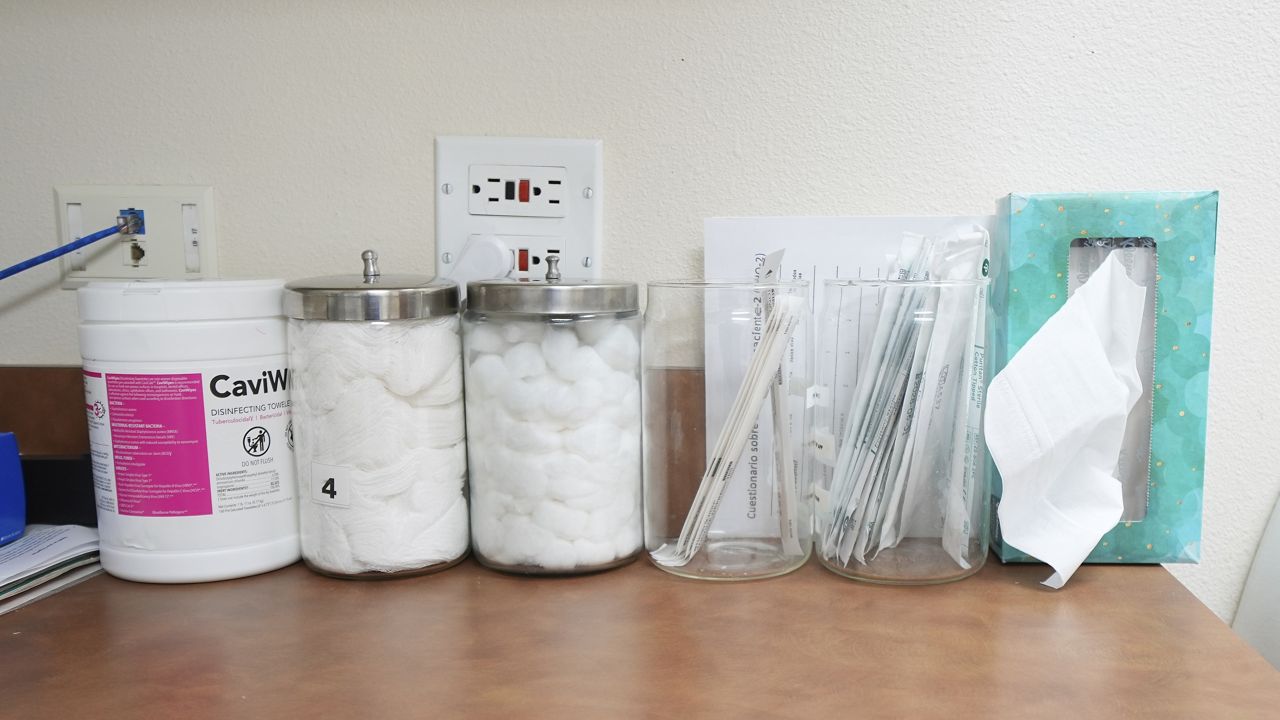CHARLOTTE, N.C. — Patients across North Carolina may soon have a new treatment for a common eye disease.
- Demodex blepharitis is the inflammation of the eyelids and causes itchiness and severe dry eye
- Dr. Patrick Vollmer says the condition could impact as many as 25 million people across the U.S.
- Currently, there are not many treatments for this condition
- A treatment in the third and final stage of clinical trials is showing a lot of promise
Michael Kiser loves detailing cars. But the hobby soon became a challenge because it requires him to be outside. Kiser has been dealing with red and itchy eyes for the last several years. Elements like wind and pollen often made his eyes worse.
“I went out to lunch one day with my pastor, and he made the comment, 'Mike, if I didn’t know better I would have thought you were drinking because your eyes are so red,'” Kiser said.
Kiser knew he had to do something about it. A previous doctor told him he had glaucoma, but Shelby optometrist Dr. Patrick Vollmer didn’t think that was the correct diagnosis. Instead, he thought Kiser had demodex blepharitis.
“Demodex blepharitis is a really common eye infection found in humans,” Kiser said. “It’s actually the most common ectoparasite found on the eyelashes and the human body.”
Vollmer noticed collarettes on Kiser’s eyelids, which is a waxy material at the base of the eyelids. It’s caused by an infestation of microscopic mites. There aren't many treatments for this, but Vollmer was excited to tell him about a new therapy in the third and final phase of clinical trials.
“The company had really good data showing their drug was effective,” Vollmer said.“The company had really good data showing their drug was effective,” Vollmer said.
Vollmer enrolled Kiser in the study led by Tarsus pharmaceuticals. It involved taking eye drops twice a day.
“It was very easy and was just a simple eye drop that goes in your eye,” Kiser said.
Kiser doesn’t know if he got the real eye drops or the placebo, but he says his eyes do feel a lot better.
“There were times I could tell the difference right off the bat, and it was more soothing to the eyes,” Kiser said.
He is optimistic and says an eye drop like this could help a lot of people return to their daily lives.
“Everybody wants to have clear eyes,” Kiser said. “Not burning and scratching your eyes all the time. If this clinical trial would help that, it could help a lot of people.”
Tarsus pharmaceuticals says during the six-week trial there were no serious side effects. But in rare cases, less than 10%, patients had mild temporary irritation of the eyes after the drops were taken. Clinical trials for these eye drops are now closed and the company is seeking FDA approval. It hopes to make it widely available in 2023.










